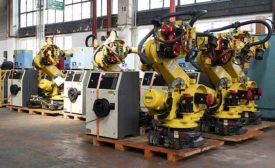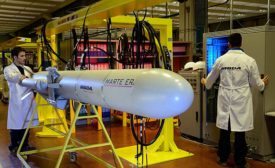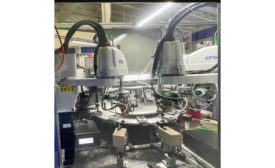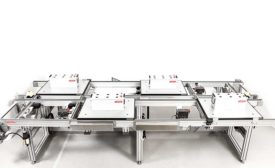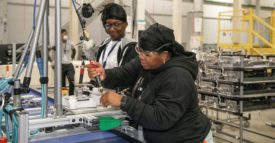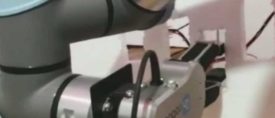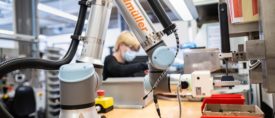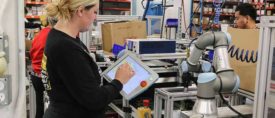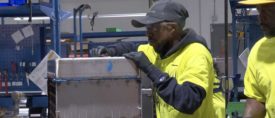Home » factory automation
Articles Tagged with ''factory automation''
By rehabbing its own used robots, renault saves money and reduces delivery times.
Read More
Software Simplifies Programming of Robots
New software enables defense contractor to program robots quickly and easily for high-mix production.
May 9, 2023
Robotics
SCARA Robots Solder Circuit Assemblies
Electronics assembler’s DIY automation project saves money and increases efficiency.
May 8, 2023
What’s New With Conveyors
Conveyors remain essential for getting parts to the right spot at the right time. Here’s a look at the state of the art.
May 5, 2023
Inside GE Appliance's State-of-the-Art Water Heater Assembly Plant
A factory that used to mass-produce refrigerators now assembles water heaters.
May 1, 2023
Robots, People Collaborate on Product Assembly
A cobot with a special gripper from the Zimmer Group improves ergonomics and productivity on Weidmüller’s assembly line.
April 11, 2023
Cobots Perform Screwdriving and Packaging for Tool Manufacturing Company
Cobots optimize assembly and packaging by 30 percent.
April 7, 2023
Flexible Automation Boosts Battery Production
Standardized, software-driven assembly cells enable start-up to manufacture batteries domestically.
April 6, 2023
Never miss the latest news and trends driving the manufacturing industry
Stay in the know on the latest assembly trends.
JOIN TODAY!Copyright ©2024. All Rights Reserved BNP Media.
Design, CMS, Hosting & Web Development :: ePublishing
